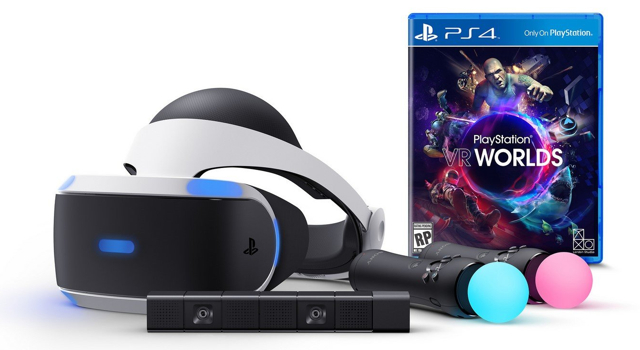VR Faces its Moment of Truth as Headsets Become Available
March 24, 2016
Virtual reality is finally available for consumers. Oculus will ship the much-anticipated Rift VR headset next week, HTC will deliver its Vive VR headset one week later, and Sony is also readying the launch of its PlayStation VR headset. Although there are technical kinks to be worked out and business models to emerge, early signs that consumers want VR are positive. The Rift is back-ordered to July, the Vive to May, and, on Amazon, the PlayStation VR Launch Bundle pre-order sold out within minutes of going live.
Variety reports that Oculus has shipped more than 175,000 of its pre-release headsets, “since debuting its first version on Kickstarter in 2012.” Buying a VR headset is a significant investment, however. The Oculus Rift costs $600 and the HTC Vive costs $800 — and that’s without the computers with enough processing power for VR (another $1,000 or more). Although the Vive includes the controllers, the Rift does not and Oculus hasn’t yet set a price.
Road to VR adds more information, just revealed at GDC, about the PlayStation VR headset for PS4, which will be priced at $399 for the headset, called the Core bundle, and will ship in October. For users who want the headset, two Move controllers, the PS Camera, and “PlayStation VR Worlds” game, the bundle is priced at $499. Although Amazon and Walmart have sold out, the bundles are still available at Best Buy, Target, and GameStop.
VR experts say that cost isn’t really an issue for enthusiasts. “Early adopters have historically rushed out and more than gladly paid for devices that were expensive,” said Wevr co-founder/chief executive Neville Spiteri, whose company creates “cinematic VR experiences.”
Then there’s the VR content. Variety notes that Fox is launching “The Martian VR Experience,” created as a companion to the movie “The Martian,” as a “trial balloon” for home entertainment, beginning sales this spring. “We expect ‘The Martian VR Experience’ to be profitable,” said Fox Home Entertainment president Mike Dunn. Netflix, Hulu and Amazon are also, to one degree or another, “exploring ways to add VR content to their respective subscription services.”
VR business models could be subscriptions, paid content and/or advertising. Although estimates of what the VR market is worth vary, everyone is talking big numbers. Deloitte Global says revenue from hardware and software will reach $1 billion by end of 2016, a number that CCS Insight agrees with, adding that 24 million VR devices will ship by 2018; Digi-Capital believes that VR and AR will generate $150 billion by 2020.


No Comments Yet
You can be the first to comment!
Sorry, comments for this entry are closed at this time.